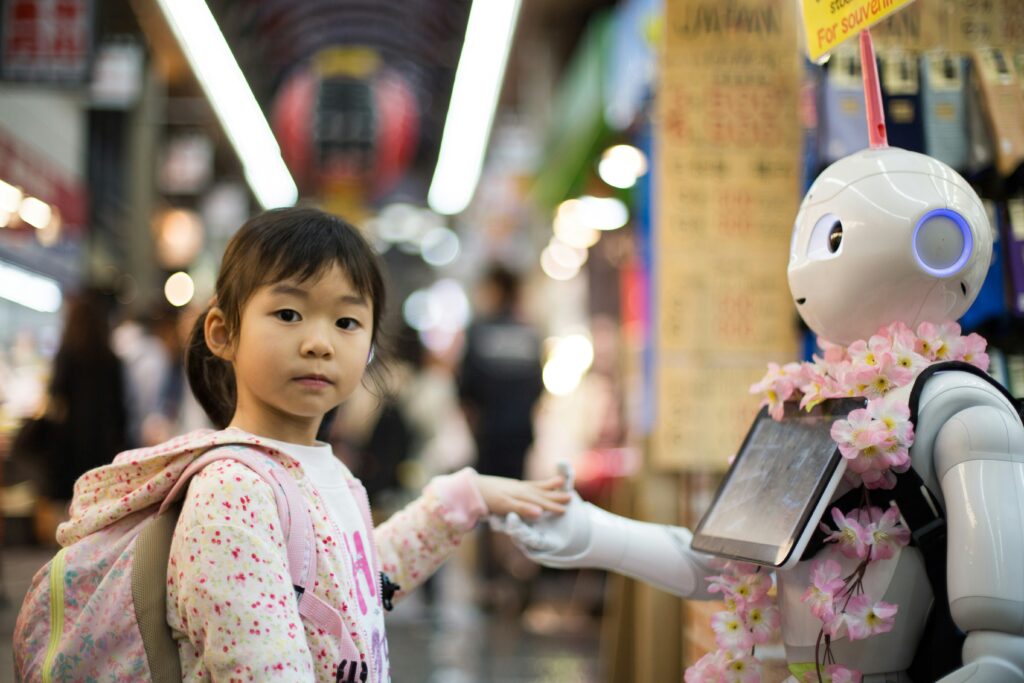
5 minute read
It is curious that so many individuals are wary of artificial intelligence, given its widespread use. Most of us wouldn’t think twice about asking Siri for advice, yet ChatGPT is an entirely different story. Why do people feel perfectly comfortable keeping company with a virtual personal assistant, but not with a natural language program that is, in essence, a different type of chatbot?
Artificial intelligence is nothing new: in fact, it’s almost as old as the computer. ENIAC, the world’s first general purpose computer, made its public debut in 1946 (Penn Today, n.d.), while the famous meeting of the minds at Dartmouth College (1956 Summer Research Project) during which the term, ‘artificial intelligence,’ was coined, occurred a scant ten years later (Dartmouth Edu., n.d.).
While the computer gained widespread acceptance, AI has surfed choppy waters, with multiple ‘waves’ of development, separated by ‘AI winters,’ during which both funding and public interest waned.
Once again, the question remains as to why. A number of scientists attribute the widespread hesitancy to the use of the term, ‘intelligence,’ and the fact that these algorithms can process information much faster than the human brain. Does this mean that human intelligence has become obsolete?
In this writer’s opinion, that is highly unlikely for several reasons. While artificial intelligence can perform certain functions with remarkable speed and accuracy, there remain many types of information integration beyond the reach of computer algorithms.
It has been suggested that this is due to the fact that artificial intelligence is based largely on feedforward networks, whereas the human brain integrates information from both the environment and internal milieu into a single unity described as consciousness ( Massimini &Tononi, 2018).
This leads to another point, which is that the evolutionary timeline for the brain is considerably longer than for artificial intelligence (approximately 200,000 years versus seven decades). The brain evolved for a specific purpose: to successfully navigate the environment ensuring survival of the species.
While the computer program, Deep Blue, beat human world champion, Lee Sedol, at the Chinese game of Go (Koch, 2016), that same program would be much less effective at ensuring Sedol’s survival throughout the lifetime. When it comes to theory of mind and other uniquely human attributes, the brain trumps AI every time.
Although philosophers, cognitive neuroscientists and theoretical physicists continue to debate the exact nature of consciousness, all agree on its essential role in human culture and civilization. Opposing thumbs have given us some evolutionary advantage over other vertebrates, but our hands can only build what the mind envisions.
The mind is the epicenter of creative intelligence, instinct and intuition, which, as Nobel laureate Roger Penrose pointed out, extends beyond the realm of any mathematical algorithm (Penrose, 1989). So perhaps, for now, we can let down our guard, and appreciate AI for what it can offer as a useful computing tool. Robots can imitate humans, but at this point, they can’t replace them.
References
Dartmouth Edu (n.d.). Artificial Intelligence Coined At Dartmouth. https://home.dartmouth.edu/about/artificial-intelligence-ai-coined-dartmouth
Koch, C. (2016). How the Computer Beat the Go Master. Scientific American Online. https://www.scientificamerican.com/article/how-the-computer-beat-the-go-master/
Massimi, M. & Tononi, G. (2018). Sizing Up Consciousness. Oxford University Press. http://www.oup.com
Penn Today (2024). The World’s First General Computer Turns 75. University of Pennsylvania. https://penntoday.upenn.edu/news/worlds-first-general-purpose-computer-turns-75#:~:text=On%20Feb.,was%20introduced%20to%20the%20world.
Penrose, R. (1989) The Emperor’s New Mind: Concerning Computers, Minds, and the Laws of Physics. Oxford University Press. http://www.oup.com

Leave a Reply